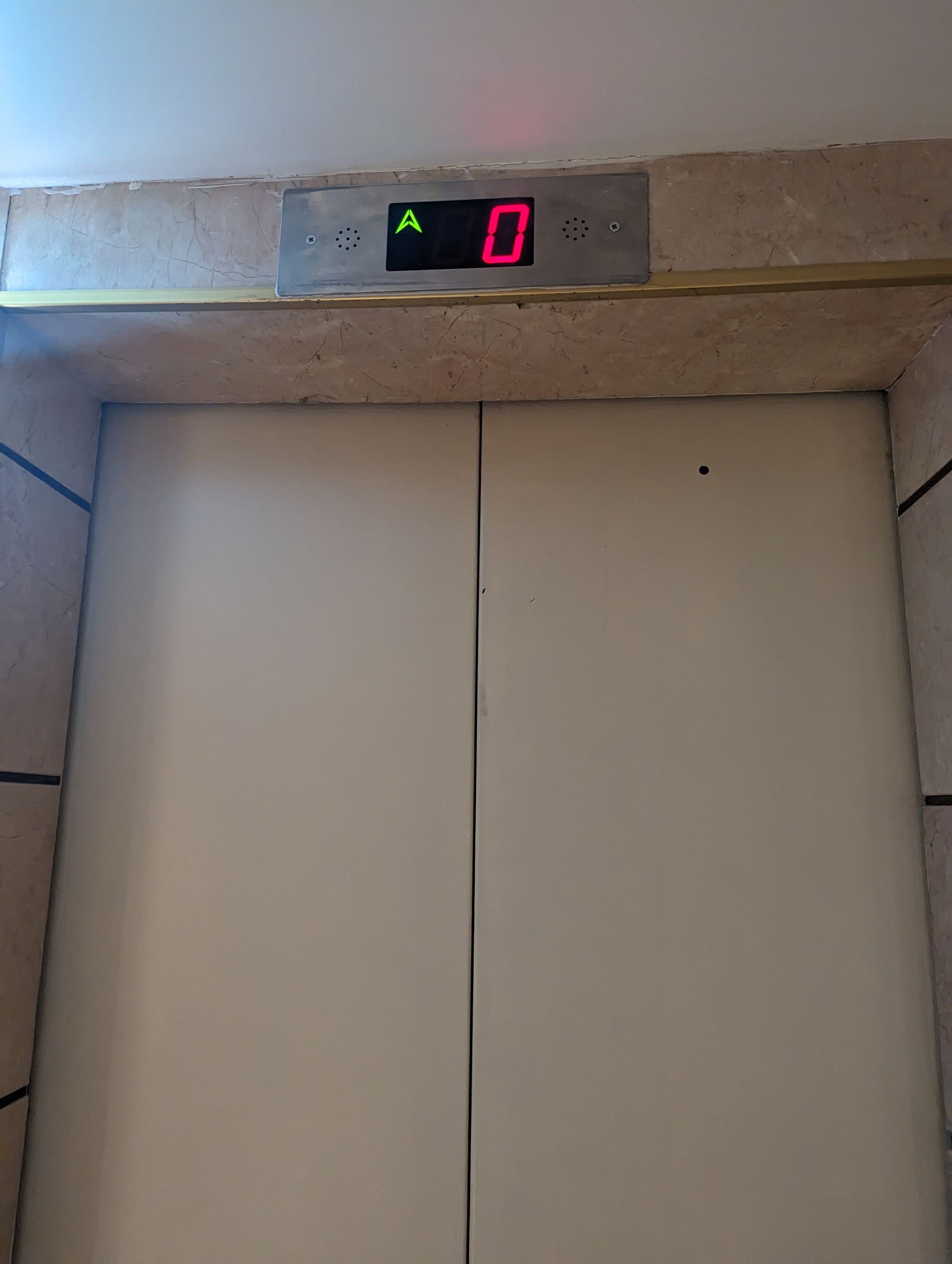The Elevator in Jerusalem

"Shoebutt," the older woman growled under her breath as we pushed the up arrow button at the elevator in the lobby of the hotel again. Not really understanding her, or even knowing if she was talking to us, we ignored her and pushed the button again. We were returning to our hotel late last Friday evening and were ready to collapse for the night in our room on the 4th floor. Well, it's really the 5th floor, but in Israel, the numbering starts at 0 on the ground floor. "Shoebutt," we heard again as we impatiently waited in the lobby watching the indicator above the door showing our future ride stopped on the 3rd floor. And then stopping on the 4th floor. And then stopping on the 5th floor. Suddenly, we figured it out.
Shabbat (or Sabbath) is the Jewish Day of Rest and is observed every Saturday. We knew it was Shabbat. Most of the restaurants closed earlier in the afternoon and the streets were eerily quiet. Other than closed restaurants, stores, and Jewish tourist sites, we were not really sure how Shabbat was going to affect us. Our hotel for the week was chosen for its great location in downtown Jerusalem. The breakfast buffet was an added bonus with a considerable number of selections giving us a unique experience every morning. But Shabbat started when the sun went down on Friday and now we had to figure out the elevator because apparently, our hotel observes as well.
Because observers of Shabbat must refrain from work, pushing an elevator button is not allowed. It has something to do with starting and stopping a fire, but the extension of ancient laws eludes us. As a result of the law, our elevator was in "Sabbat Mode." The lift ignored all the buttons and automatically stopped at each floor on its way to the top. From the top, it returned to the lobby and then continuously repeated the same cycle. We just needed to wait for it. And then stop and wait at each floor on the way to our own floor. When we finally reached our floor and found our way to our room, we were pleasantly surprised to find a small bottle of wine we assumed was a reward for our patience.
The next morning, after taking the stairs down to the lobby area for our breakfast feast, we noticed a few changes. The hi-tech coffee machine that made the perfect espresso, cappuccino, americano, or latte with the push of a button... was not working! And the toaster typically located on the table with various breads, rolls, and pastries... was missing! And the hot dish options like the eggs... were replaced with hard-boiled eggs. With so many other options, we weren't in distress, except maybe for the cappuccino.
So selections were made, plates were filled, and we found an empty table amongst many already taken. As we enjoyed our meal, we watched the tables around us. The process seemed to be the same. A Jewish family arrived with the men and boys wearing yamakas of different sizes and styles. Women and girls were dressed conservatively in muted colors and head coverings. Bread was broken and passed around. A similar wine bottle to the one we found in our room made its way to a cup in front of each family member. The father mumbled a few words we wouldn't understand if we heard them. Within a minute or two, the ceremony was over and the family made their way to the buffet to make their own selections.
After breakfast, we headed to the Christian sites in and around the old city of Jerusalem. With Shabbat well underway, we competed for space as throngs of tourists were directed to the same locations. By now, we understood the protocol. For Jewish sites, cover your head. For Catholic sites, take off your hat. And for Protestant sites, it doesn't matter. By the end of the day, we recorded many miles on our feet and headed back to our hotel. The quiet streets around our hotel were now alive as Shabbat came to an end. Restaurants re-opened and life in Jerusalem returned to normal. Inconvenient? Maybe, but well worth the experience of another culture in Jerusalem.